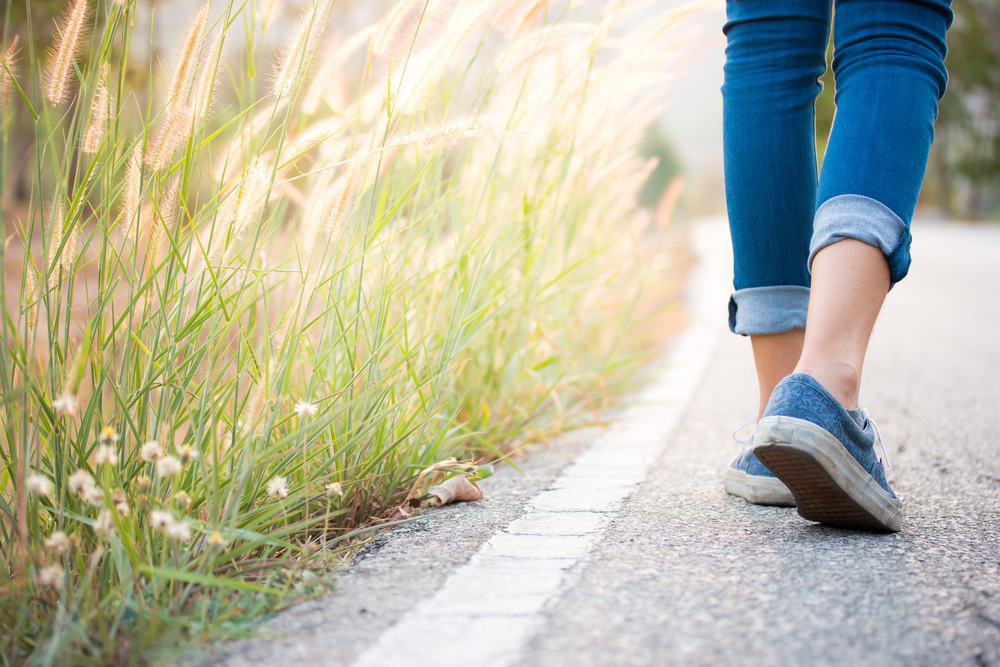Establishing an intentional nighttime routine that encourages quality sleep is important — but according to a new study, there’s something you could be doing throughout the day that helps, too, and it’s simpler than you’d think. Try incorporating a short walk into your day and see if your sleep improves. According to researchers from Brandeis University, taking more steps throughout the day can help you fall asleep faster, and feel more well-rested upon waking up.
In their study, the researchers recruited nearly 60 middle-aged working Americans to wear a step-tracking device for four weeks, and monitored the group’s sleep levels through self-completed daily questionnaires. They found that most participants were taking around 3,000 steps each day — which proved to be enough activity for a quality night’s sleep.
Not surprisingly, the researchers did find that those who exceeded the average number of steps in their daily activities experienced even better sleep, so on the days where you have time to fit in a morning run before work, know that doing so can make a significant difference. With that said, it’s encouraging to know that simply walking the dog for a few extra minutes — or fitting in an extra lap around the block during your lunch break — can benefit your sleep, allowing you to feel more focused, productive, and energized throughout the day.
Follow us here and subscribe here for all the latest news on how you can keep Thriving.
Stay up to date or catch up on all our podcasts with Arianna Huffington here.


